McLean, VA
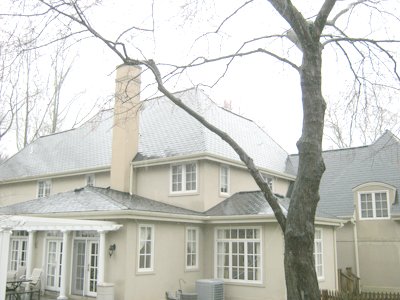
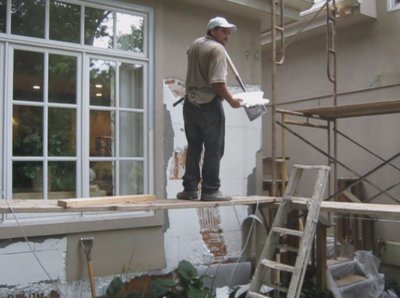
More..
More..
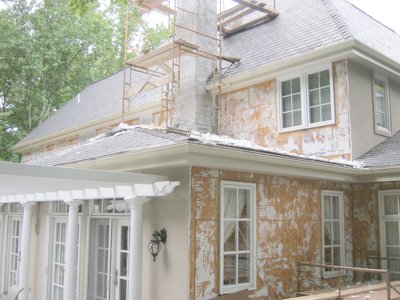
ABOVE:
Snow on the roof in August ? White foam is everywhere.
How we tore off the dryvit. )
RIGHT:
Chimneys are riddled with bird holes. These are sparrows.
More here..
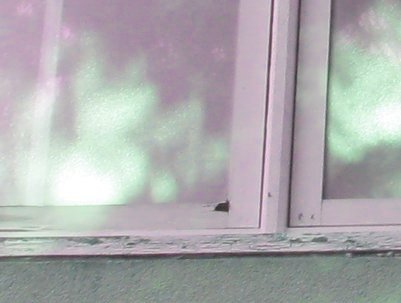
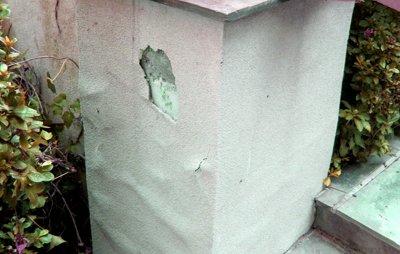
The foam traps water against the wall.
Also these windows had no flashing above the windows. This was partially due to neglect;
the EIFS industry had the audacity to claim that
their product was so waterproof, flashing wasn't
needed.
finish coat. The finish coat is a highly toxic acrylic paint, usually mixed with plastic "sand".
Here the plastic cloth was put directly on the concrete, instead of foam board.